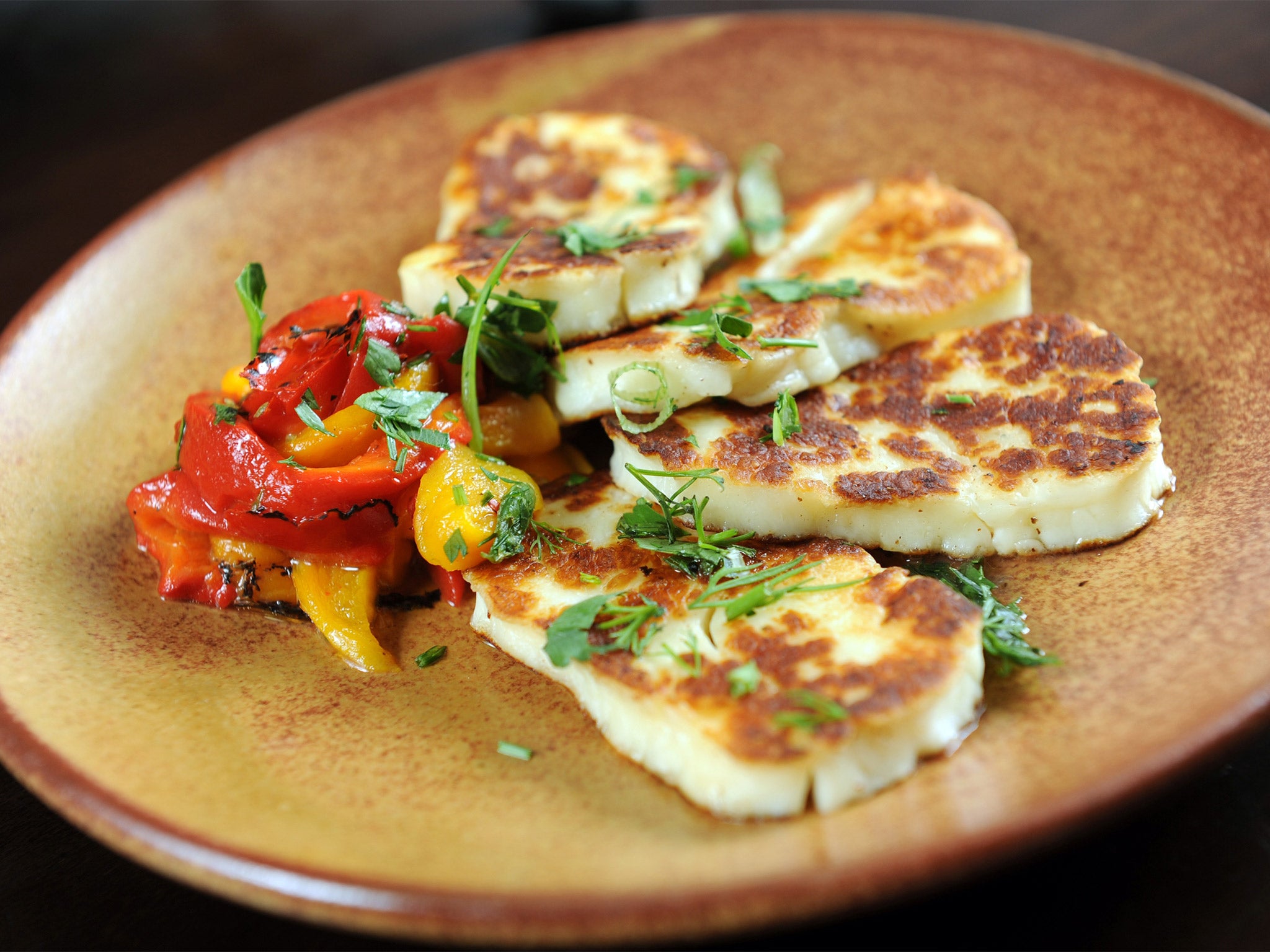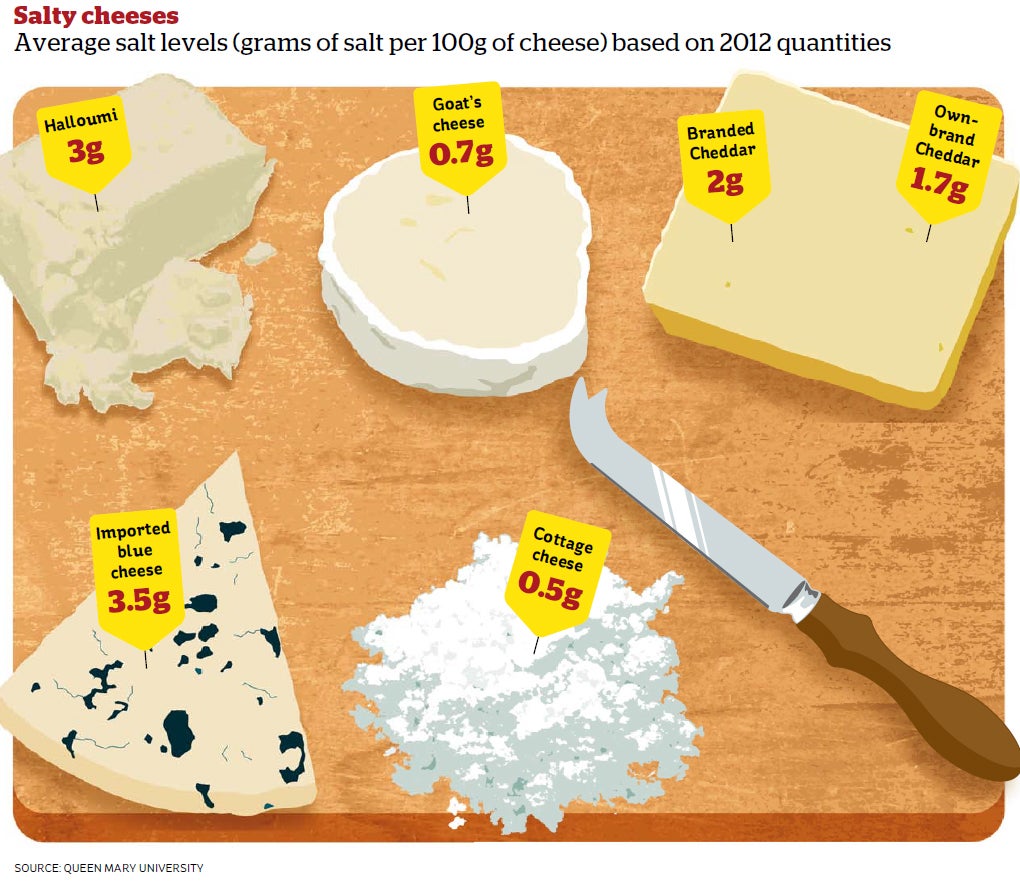Branded blue cheese and halloumi are 'saltier than seawater'

Your support helps us to tell the story
From reproductive rights to climate change to Big Tech, The Independent is on the ground when the story is developing. Whether it's investigating the financials of Elon Musk's pro-Trump PAC or producing our latest documentary, 'The A Word', which shines a light on the American women fighting for reproductive rights, we know how important it is to parse out the facts from the messaging.
At such a critical moment in US history, we need reporters on the ground. Your donation allows us to keep sending journalists to speak to both sides of the story.
The Independent is trusted by Americans across the entire political spectrum. And unlike many other quality news outlets, we choose not to lock Americans out of our reporting and analysis with paywalls. We believe quality journalism should be available to everyone, paid for by those who can afford it.
Your support makes all the difference.Gourmet halloumi and French blue cheese – they may be two favourites of the middle class cheese-lover, but on one measure they are way behind the humblest supermarket own-brand.
New research has uncovered the “unnecessarily high” levels of salt in cheeses available in UK supermarkets, revealing that halloumis and blue cheeses are, on average, saltier than seawater.
The study, the first to offer a detailed snapshot of a major source of salt in our diet, also found that supermarket own-brand cheeses were, surprisingly, more likely to meet Government salt-reduction targets than branded products.
An average British person consumes 9kg of cheese every year and despite recent drives to cut the amount of salt in a range of foods, including cheeses, many of the most popular brands still contain very high concentrations, researchers from Queen Mary University said.
Around nine per cent of our salt intake comes from dairy products, and cheese contributes nearly half of that. High salt intake has been linked to high blood pressure, which increases the risk of heart attacks, strokes, heart failure and kidney disease.
From a survey of 612 different cheeses available in UK supermarkets, conducted in 2012, researchers found that halloumis and blue cheese had the most salt, each containing on average 2.71g per 100g. Cottage cheeses were the least salty, with just 0.55g per 100g.

Adults are recommended to eat no more than 6g of salt a day.
Researchers investigated 250 different types of the most popular cheese – cheddar – and found that salt content tended to be higher in branded products, which had on average 1.78g per 100g, than in supermarket own-brands, which had slightly less at 1.72g. The findings are published in the online journal BMJ Open today.
Experts said that the success of own-brand products at meeting salt reduction targets was evidence that it was possible to produce cheese that would be popular with consumers, with less salt content, but said that salt reduction targets needed to be stricter.
“Big brands need to stop dragging their heels and catch with the supermarkets, or they will be left behind,” said Dr Kawther Hashem, co-author of the study and a nutritionist for Consensus Action on Salt and Health. “It’s worth looking at the label and choosing a lower salt and fat version of your favourite cheese, or better yet, to eat very small amounts.”
Join our commenting forum
Join thought-provoking conversations, follow other Independent readers and see their replies
Comments